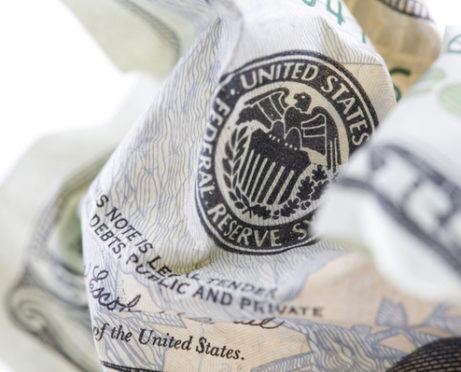
Imagine for a moment that you’re in your childhood home. You have the twin bed you’ve slept on for years, a desk, and a few token trophies in your room. It’s the only house you’ve ever known – all of your childhood memories took place here. Then a freak natural disaster strikes.

Suddenly, your room is filled with eight feet of water. Trees crash through the roof, broken branches spread all over. This is not a movie script. That is what happened to me, my family, and to my community in 2005, while I was in my late teens, during Hurricane Katrina.
Build an Emergency Savings Fund With a Money Market Account — Get Started >>
One minute, the skies were a perfect blue, and the next minute, the whole city was underwater. It was a scary and uncertain time for all Gulf Coast residents, but in many ways, it taught me a lot about persistence and perseverance in the face of complete and utter destruction.
Ruthless Prioritization
If you ever experience a natural disaster of this magnitude, the very first step to take is to set your priorities.
After Katrina, there were horror stories of people living in small hotel rooms without supplies for months at a time. My family and I were able to make it about two hours north of New Orleans, to a small town where our cousins lived. My parents tried hard to establish a sense of normalcy in our lives, although there is truly no “normal” when you experience something like Hurricane Katrina.
Get a Small Personal Loan for Your Emergency Expenses Today — All Credit Types Welcome >>
My little brother started going to a new school, and they helped me switch colleges, since my initial college, Tulane, completely shut down. Once they had us settled, they quickly made decisions about their work, trying to find a way to continue earning an income. The business my parents had for two decades was literally under water.
Focus on the Positive
The first few months after Hurricane Katrina were bleak. The entire state seemed to be in a constant depression. All anyone could talk about was the storm, what they lost, who they lost, and how their lives would never be the same.
Even now, as I try to reach back in my mind for those memories, they are hard to conjure up. It was a moment in time where you just took things slowly, grateful to have the resources, to have a place to sleep and money to buy food, but also deeply saddened at losing so much in such an unexpected and violent way.
The only way I got through it was to continuously focus on the positive. Everyone in my family was alive. My elderly grandparents, who stayed in their home, had been rescued and were okay. My brother, sister, and I were okay. My parents were okay. My aunts, uncles, cousins, and extended family were all okay.
Just a few days after Hurricane Katrina hit, I also met the man who later became my husband. He took my mind off of everything in those first few months after the storm. He was taking me on dates, teaching me about college football, and buying me lots of coffee. We fell in love almost immediately. Now that he’s the father of my beautiful children, I can’t imagine what my life would be like without him. After all, I only met him because of the storm. Life really does work in mysterious ways.
My Advice to Others
When you’re left with nothing and your life is stripped down to the bare essentials, you really have to rely on your family and yourself.
You have to be appreciative for your own two hands, your own work ethic, and your own abilities.
Petty things don’t really matter anymore. Material things don’t matter. Eventually, you can look back on the situation 10 years later, as I do, and marvel at how you survived such a catastrophic event and came out of it stronger.
The most important advice that I give to people is to start an emergency fund. Make sure you put money away every month in a separate account that you don’t touch.
Insurance is extremely important when spending large amounts of money on valuables such as your home.
Get Homeowner’s Insurance From a Top Provider — Free Quote Here >>
Also, make sure that you have a credit card with a high limit on it. Keep asking your top creditor for higher limits. But don’t actually use it or go into debt with it unless you truly need it.
After Hurricane Katrina, so many banks shut down that people who only banked with local institutions had a lot of trouble accessing their cash. Credit cards helped my family buy food, water, and housing when we weren’t able to access cash for several days.
I hope you never have to use an emergency fund like this, or ever experience something like Hurricane Katrina. But if you do, think things through. Make calm and calculated decisions on your next steps. All of the paperwork, insurance claims, car replacements, and the like will work out eventually. But spend your time and energy on taking care of the essentials.
After all, the essentials are all that really matter, anyway.










